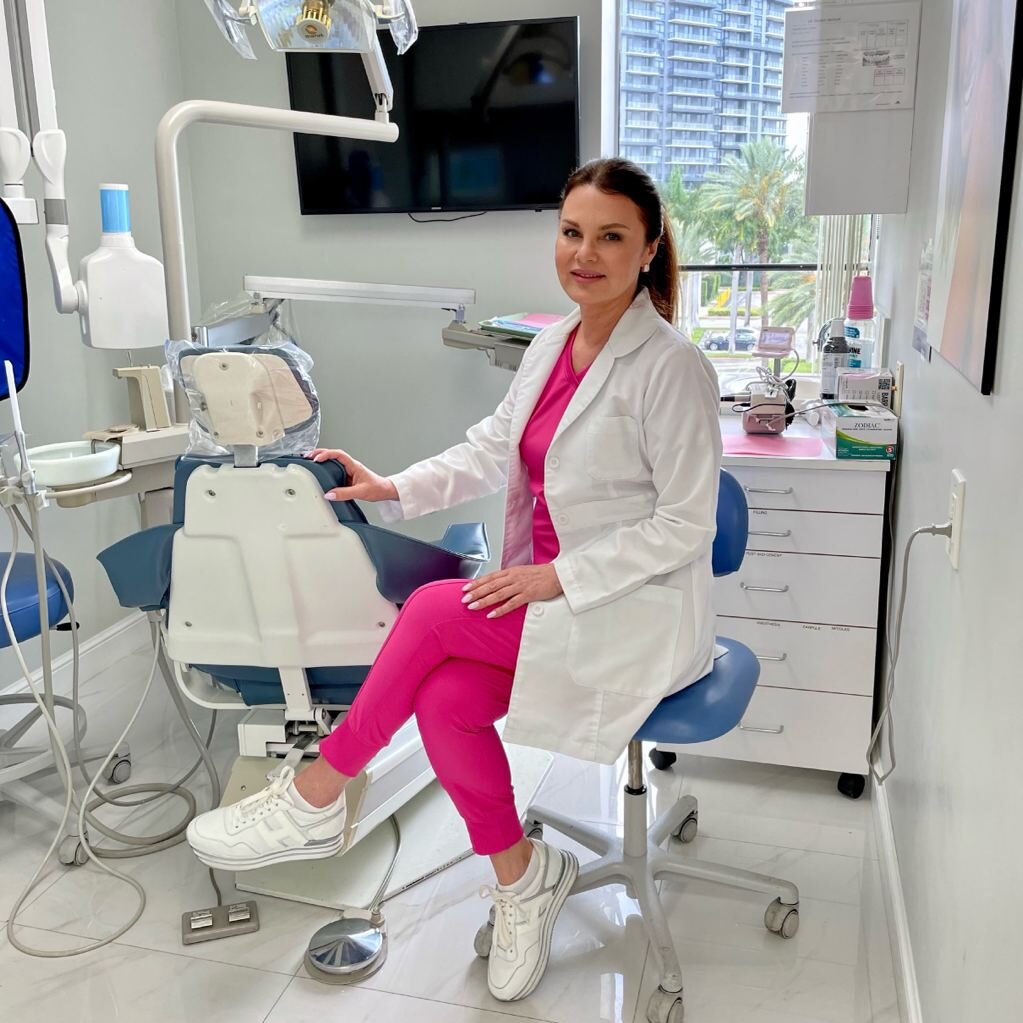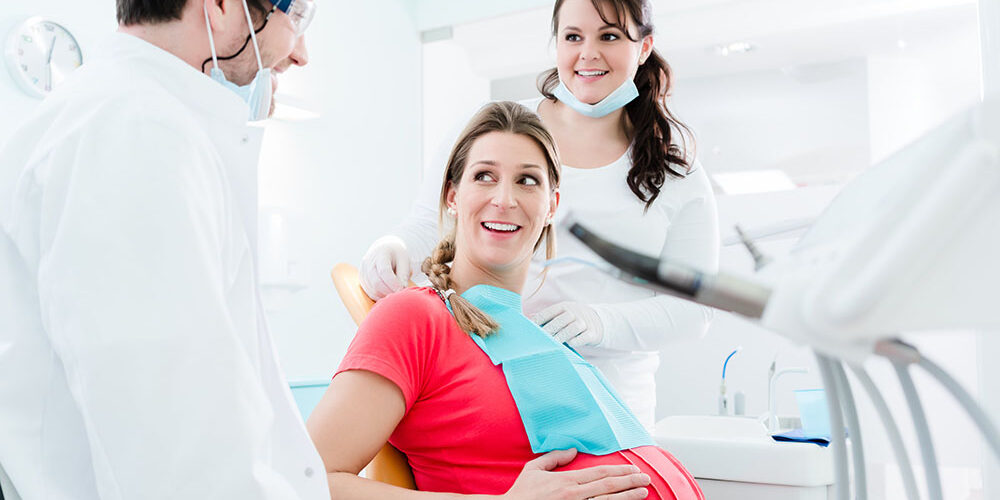Can You Get Veneers During Pregnancy?

A beautiful smile can be a confidence boost to all women. Even though pregnancy can be a turbulent time, expectant mothers can still look their best. Modern medicine is equipped with the necessary tools to help you achieve these results. When it comes to restoring the aesthetics of a smile, we usually imply the use of veneers. Veneers help transform the smile, making it brighter, whiter and more attractive.
Let’s refer to a dentist with 25 years of experience to help us answer the following questions:
Can you have veneers installed during pregnancy?
What are the 5 factors to be considered with veneer installation during pregnancy?
How do I take care of my veneers during pregnancy?
What are veneers?
In short, veneers are ceramic, zirconia, or composite onlays that are placed on the visible surface of the front teeth to hide their aesthetic flaws, and create the iconic Hollywood smile. This technique is considered one of the most popular among media personalities, actors, athletes, and everyday people.
Composite or porcelain: which is better?
Can you have veneers installed during pregnancy?
Let’s have a look at general indications and contraindications for veneer installation.
Veneers are indicated in the following situations:
Mechanical defects on the teeth (chips, cracks, etc.)
Pigmented spots on the enamel
Fluorosis
Diastomas (gaps between teeth)
Mild malocclusion
Wear of the tooth enamel after braces or other orthodontic structures
Veneers are not indicated in the following situations:
Moderate to severe malocclusion
Absence of chewing teeth
Bruxism (nighttime grinding of teeth)
Absence of more than 50% of the tooth crown
Increased tooth wear.
Veneers are not recommended in case of these diseases and pathological conditions.
Five factors to consider before veneer installation during pregnancy
During pregnancy, the body of an expectant mother begins to undergo a serious change that affects the maxillofacial area. To understand when it will be safe for you and your baby to have veneers installed, we recommend taking into account 5 factors.
Which trimester?
The first trimester (12 weeks) is of utmost importance. At this stage, all the main processes related to fetal development are being established. For example, the placenta and organs of the embryo are formed. In the first 3 months of pregnancy, you should be extremely cautious when it comes to any medical treatment.
The second trimester (13 to 24 weeks) is considered to be the safest. The risk of pregnancy termination is reduced to a minimum due to a well-developed placenta, which reliably protects the baby.

DOCTOR’S OPINION: WHAT IF YOU HAD VENEERS INSTALLED BEFORE BECOMING PREGNANT?
In my practice, I have met patients who have asked whether veneers should be removed while carrying a child. I want to reassure you right away that it is not necessary. I recommend you visit a doctor regularly, and have scheduled professional oral hygiene.
IF YOU FACE A SITUATION WHERE YOU NEED EMERGENCY DENTAL CARE, DISCUSS WITH YOUR DENTIST THE SAFEST TREATMENT OPTIONS
Single stage implantation
A CT scan or dental X-ray is performed at the preparatory stage to find possible hidden defects. A CT scan is preferable. The dentist takes a high-precision 3D picture, which helps the dentist better assess the condition of the oral cavity.
If necessary, any pictures (spot, panoramic, 3D) of pregnant women are taken on modern, digital equipment, providing minimal radiation exposure. One scan should not affect the fetus’s development.
Is anesthesia dangerous?
A few facts about anesthesia:
Anesthesia can be administered to pregnant women if it makes them feel more comfortable. Local anesthesia will prevent discomfort while the dentist prepares the teeth for veneer installation.
There is no special anesthetic developed for pregnant women. Nevertheless, modern medicine aids in finding a safe compound for the expectant mother and her baby.
At Svetlana Dental & Esthetic Center, we use an anesthetic without epinephrine. The preparation and installment of veneers during pregnancy will be a comfortable experience!
Tooth and gum sensitivity
During pregnancy, a woman’s body significantly increases the need for calcium by 1.5 times. If there is not enough calcium, the fetus acquires the deficit from the bone tissue and hard tissues of the mother’s teeth. In this clinical situation, the remineralizing properties of saliva are reduced and tooth enamel is weakened. This leads to hyperaesthesia, i.e. hypersensitivity of the teeth.
Are you experiencing pain while brushing your teeth? The reason may be hormonal shifts in the body, reduced immunity, lack of vitamin C, or insufficient oral hygiene.
It is important to find an experienced dentist who will take into account all these nuances before veneer installation. The dentist needs to prepare the tooth enamel and remove plaque and calculus.
Your comfort
We want you to feel comfortable at the dentist. Some are afraid of the sound of the drill or, in general, feel stressed when they sit in the dental chair. Some expectant mothers cannot lie on their backs for long periods of time. In this case, it is possible to postpone the placement of veneers during pregnancy to avoid experiencing negative emotions that can harm the fetus.
How do you know if you can have veneers installed during pregnancy?

Schedule an appointment for a consultation with your dentist! Only after examination, consultation, and diagnosis can they determine the possibility of veneer installation during pregnancy.
How should you care for veneers during pregnancy?
Dental care during pregnancy is always necessary, whether you have veneers or not. Let’s list some positive habits recommended by dentists to have during pregnancy.
Brush your teeth with a medium-hard brush and toothpaste that does not contain abrasive ingredients
Use mouthwashes. It is helpful to have xylitol in your mouthwash. It prevents the growth of bacteria, reduces the risk of tooth decay, has an antifungal effect, and normalizes the acid-alkaline balance
Don’t forget to floss between your teeth.